In order to find a device document corresponding to a userId, you have to use a simple query like:
const db = admin.firestore();
db.collection('devices').where("userId", "==", element.id).get();
see the corresponding doc here.
Since you need to make a query for each element of the aNotify array, you need to use Promise.all(), since get() returns a Promise.
Something like the following will work. You have to adapt it in order to correctly return the promises in your Cloud Function (since you didn't share your Cloud Function code it is difficult to give more guidance on this point).
const db = admin.firestore();
var aNotify = [{ id: 'id001', text: 'specialTextFor001' }, { id: 'id002', text: 'specialTextFor002' }];
var promises = []
aNotify.forEach(function (element) {
promises.push(db.collection('devices').where("userId", "==", element.id).get());
});
return Promise.all(promises)
.then(results => {
results.forEach(querySnapshot => {
querySnapshot.forEach(function (doc) {
console.log(doc.id, " => ", doc.data());
//here, either send a notification for each user of populate an array, or....
//e.g. return admin.messaging().sendToDevice(doc.data().token, ....);
});
});
});
Note that the results array has exactly the same order than the promises array. So it is not complicated to get the text property of the corresponding object of the aNotify array when you send the notifications.
